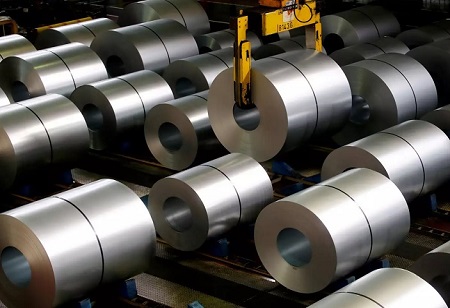Input cost pressures, volatile coal prices and a jump in freight and refractory rates could create room for further upsurges in the selling rates for steel, Seshagiri Rao, JSW Steel’s joint managing director, said. "The cost pressures are so high, the demand is reasonably okay; considering this, there is definitely a scope for readjustment of prices to the extent of pressures in the cost," stated Rao.
The firm is also considering levying a surcharge linked to coal prices to survive the volatility.
"Globally, many companies in Europe and the US have introduced something called a surcharge where the steel prices fluctuate due to energy or scrap prices...this kind of absorption on cost is not easy for any consumer. Therefore, we are contemplating introducing a surcharge," Rao stated.
Once the sale prices are linked to the cost of coking coal, JSW Steel doesn't have to keep increasing prices. Coking coal values went up from $100-$140 a tonne last year to $400 a tonne. There is also a thermal coal crisis in India, with state-owned Coal India prioritizing supply to the power segment. "Price increases will happen either through a surcharge or through price hikes in HRC until coking coal prices normalize," Rao added. In the month of October, JSW Steel inaugurated integrated operations of its 5 MTPA brownfield expansion at Dolvi. Rao said that the new expansion at Dolvi will help the company cut costs by at least 15-20% from the next quarter.
While reporting the September quarter results, the firm said that its net debt levels were around 55,394 crore. Rao said that the firm's debt levels are unlikely to go up from here. "Our relative ratios are in line, net debt to Ebitda has come down from 2.6 to 1.58 times. Debt to net worth has come down from 1.14 to 0.92 times...so debt levels are unlikely to go up further other than for the consolidation of Bhushan Power and Steel," Rao said.
JSW Steel reported its highest-ever consolidated quarterly net profit of 7,179 crore, up more than four times, paced by a more profitable product mix and robust export demand in the fiscal second quarter. The company's value-added product mix has contributed 60% of the total sales. "We have around 30% of the market share in terms of auto grade steel. With 23 MT capacity we have today, and with Bhushan and 12 MT in downstream, we are the most efficient company in terms of capacity, profitability and debt tonne,” Rao stated.
